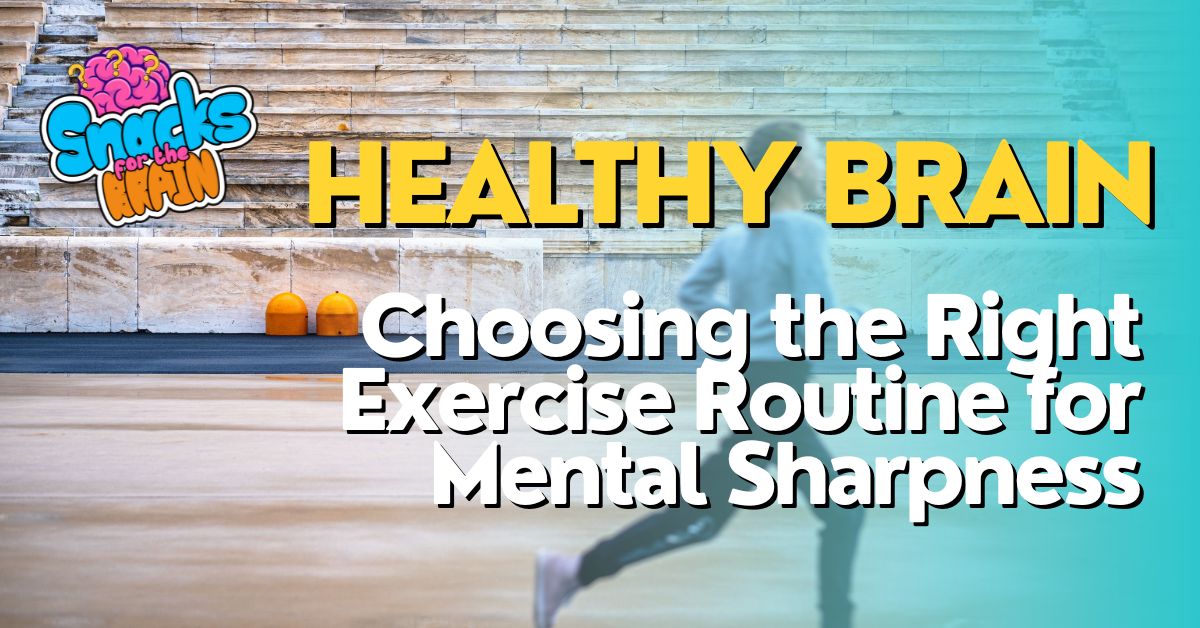Gamification is the process of incorporating game-like elements into non-game contexts to enhance user engagement and motivation. In the realm of brain training, gamification has become increasingly popular as a way to make cognitive exercises more enjoyable and effective. By turning brain training into a fun and engaging experience, individuals are more likely to stick with their training regimen and reap the benefits of improved cognitive function.
Brain training involves a series of cognitive exercises designed to challenge and stimulate the brain. These exercises target various cognitive abilities such as memory, attention, problem-solving, and critical thinking. Traditionally, brain training programs have been seen as tedious and boring, leading many individuals to abandon their training efforts. However, by incorporating gamification techniques, brain training can be transformed into an enjoyable and rewarding experience.
The importance of making brain training fun and engaging cannot be overstated. When individuals find an activity enjoyable, they are more likely to engage in it regularly and for longer periods of time. This is especially true for brain training, as consistency is key to achieving optimal results. By gamifying brain training, individuals are more likely to stick with their training regimen, leading to improved cognitive function and overall brain health.
Key Takeaways
- Gamification can enhance brain training by making it more engaging and enjoyable.
- Cognitive exercises can improve brain function and prevent cognitive decline.
- Gamified brain training can improve memory, attention, and other cognitive skills.
- There are various types of gamified brain training programs, including mobile apps and virtual reality games.
- Successful gamified brain training programs have features such as personalization, feedback, and social interaction.
The Science Behind Cognitive Exercises
To understand the benefits of gamified brain training, it is important to first understand how the brain works. The brain is a complex organ that is responsible for processing information, controlling bodily functions, and regulating emotions. It consists of billions of neurons that communicate with each other through electrical impulses.
Cognitive exercises are designed to stimulate specific areas of the brain and improve cognitive function. These exercises can target various cognitive abilities such as memory, attention, problem-solving, and critical thinking. By challenging these cognitive abilities through targeted exercises, individuals can improve their overall brain health and cognitive performance.
Research has shown that engaging in regular cognitive exercises can have a positive impact on brain health. Studies have found that individuals who engage in brain training activities have improved memory, attention, and problem-solving skills. Additionally, cognitive exercises have been shown to slow down age-related cognitive decline and reduce the risk of developing neurodegenerative diseases such as Alzheimer’s.
Benefits of Gamifying Brain Training
The gamification of brain training offers several benefits that can enhance the overall training experience and improve cognitive function.
One of the main benefits of gamification is increased motivation and engagement. By incorporating game-like elements such as levels, challenges, and rewards, individuals are more motivated to complete their training sessions and achieve their goals. The element of competition can also be introduced, allowing users to compare their performance with others and strive for improvement.
Another benefit of gamified brain training is improved learning and retention. When individuals are engaged in a fun and interactive activity, they are more likely to pay attention and absorb information. The use of visuals, sounds, and interactive elements can enhance the learning experience and improve information retention.
Furthermore, gamified brain training offers an enhanced overall experience. By making brain training enjoyable and engaging, individuals are more likely to view it as a positive activity rather than a chore. This positive association can lead to increased satisfaction and enjoyment, making individuals more likely to continue their training efforts in the long term.
Types of Gamified Brain Training Programs
There are various types of gamified brain training programs available that target different cognitive abilities. Some popular types include memory games, problem-solving challenges, brain teasers, and interactive puzzles.
Memory games are designed to improve memory function by challenging individuals to remember and recall information. These games often involve matching pairs or remembering sequences of numbers or patterns. By regularly engaging in memory games, individuals can improve their short-term and long-term memory abilities.
Problem-solving challenges require individuals to think critically and find solutions to complex problems. These challenges often involve puzzles or riddles that require logical thinking and creative problem-solving skills. By regularly engaging in problem-solving challenges, individuals can improve their cognitive flexibility and analytical thinking abilities.
Brain teasers are short and challenging exercises that require individuals to think quickly and creatively. These exercises often involve wordplay, visual puzzles, or mathematical problems. By regularly engaging in brain teasers, individuals can improve their cognitive agility and mental quickness.
Interactive puzzles are digital games that require individuals to solve puzzles or complete tasks in a virtual environment. These games often have levels, challenges, and rewards that motivate individuals to continue playing. By regularly engaging in interactive puzzles, individuals can improve their cognitive abilities while enjoying a fun and immersive gaming experience.
Features of Successful Gamified Brain Training Programs
Successful gamified brain training programs share several key features that enhance the overall training experience and improve cognitive function.
Personalization is an important feature of gamified brain training programs. By tailoring the training program to the individual’s specific needs and goals, individuals are more likely to stay engaged and motivated. Personalization can include adjusting the difficulty level of exercises, targeting specific cognitive abilities, and providing feedback on performance.
Progress tracking is another important feature of gamified brain training programs. By allowing individuals to track their progress over time, they can see their improvement and stay motivated to continue their training efforts. Progress tracking can include metrics such as accuracy, speed, and completion time, allowing individuals to set goals and monitor their performance.
Rewards and incentives are effective motivators in gamified brain training programs. By providing rewards for completing exercises or achieving milestones, individuals are more likely to stay engaged and motivated. Rewards can include virtual badges, points, or unlocking new levels or challenges.
Social interaction is an important aspect of gamified brain training programs. By allowing individuals to connect with others who are also engaging in brain training, they can compare their performance, share tips and strategies, and engage in friendly competition. Social interaction can be facilitated through leaderboards, challenges, or online communities.
Examples of Popular Gamified Brain Training Apps

There are several popular gamified brain training apps available that have gained widespread popularity and positive reviews.
Lumosity is one of the most well-known brain training apps that offers a wide range of cognitive exercises. The app incorporates gamification techniques such as levels, challenges, and rewards to make brain training fun and engaging. Lumosity also offers personalized training programs based on individual goals and provides progress tracking to monitor improvement over time.
Elevate is another popular brain training app that focuses on improving cognitive abilities such as memory, attention, and problem-solving. The app offers a variety of interactive games and exercises that are designed to challenge and stimulate the brain. Elevate also provides personalized training programs and progress tracking to help individuals stay motivated and track their improvement.
Peak is a gamified brain training app that offers a wide range of cognitive exercises targeting various cognitive abilities. The app incorporates game-like elements such as levels, challenges, and rewards to make brain training enjoyable and engaging. Peak also offers personalized training programs based on individual goals and provides progress tracking to monitor improvement over time.
CogniFit is a comprehensive brain training program that offers a wide range of cognitive exercises targeting various cognitive abilities. The program uses gamification techniques such as levels, challenges, and rewards to make brain training fun and engaging. CogniFit also offers personalized training programs based on individual goals and provides progress tracking to monitor improvement over time.
Gamification and Motivation in Brain Training
Gamification has been shown to increase motivation in various contexts, including brain training. By incorporating game-like elements such as levels, challenges, and rewards, individuals are more motivated to engage in their training sessions and achieve their goals.
Motivation plays a crucial role in the effectiveness of brain training. When individuals are motivated to engage in their training sessions, they are more likely to put in the effort and focus required to improve cognitive function. Without motivation, individuals may not fully engage in the exercises or may not stick with their training regimen long enough to see significant improvements.
There are two types of motivation that can be influenced by gamification: intrinsic motivation and extrinsic motivation. Intrinsic motivation refers to the internal desire to engage in an activity for its own sake, while extrinsic motivation refers to engaging in an activity for external rewards or incentives.
Gamification can enhance intrinsic motivation by making brain training enjoyable and satisfying. By incorporating game-like elements, individuals are more likely to view brain training as a positive and rewarding activity. This positive association can increase intrinsic motivation and make individuals more likely to engage in brain training regularly and for longer periods of time.
Gamification can also enhance extrinsic motivation by providing rewards and incentives for completing exercises or achieving milestones. By offering virtual badges, points, or unlocking new levels or challenges, individuals are motivated to continue their training efforts in order to earn these rewards. This extrinsic motivation can be especially effective for individuals who are motivated by external factors and rewards.
The Future of Gamified Brain Training
The future of gamified brain training looks promising, with advancements in technology and the potential for integration with virtual reality.
Advancements in technology have made gamified brain training more accessible and immersive. With the widespread use of smartphones and tablets, individuals can easily access brain training apps and engage in cognitive exercises anytime, anywhere. Additionally, advancements in wearable technology such as smartwatches and virtual reality headsets have the potential to further enhance the gamified brain training experience.
Integration with virtual reality is another exciting development in gamified brain training. Virtual reality technology allows individuals to immerse themselves in a virtual environment and interact with digital objects and characters. By incorporating virtual reality into brain training programs, individuals can engage in more realistic and immersive cognitive exercises, leading to enhanced cognitive function.
Furthermore, the future of gamified brain training holds the potential for personalized training programs. With advancements in artificial intelligence and machine learning, brain training programs can be tailored to the individual’s specific needs and goals. This personalized approach can optimize the effectiveness of brain training and lead to better cognitive outcomes.
Criticisms of Gamified Brain Training
While gamified brain training has gained popularity, it is not without its criticisms.
One criticism is the lack of scientific evidence supporting the effectiveness of gamified brain training. While there have been studies showing positive effects of cognitive exercises on brain health, some argue that the specific benefits of gamification have not been thoroughly researched. Critics argue that more rigorous scientific studies are needed to determine the true impact of gamified brain training on cognitive function.
Another criticism is the overemphasis on game-like features in gamified brain training programs. Some argue that the focus on making brain training fun and engaging may detract from the actual cognitive exercises. Critics argue that too much emphasis on game-like elements may lead individuals to focus more on achieving high scores or unlocking rewards rather than engaging in the exercises with proper attention and effort.
There is also a concern that individuals may become too reliant on gamified brain training apps and neglect other aspects of brain health. Critics argue that while gamified brain training can be beneficial, it should not be seen as a replacement for other lifestyle factors that contribute to brain health, such as physical exercise, a healthy diet, and social interaction.
The Power of Fun in Brain Training
In conclusion, gamification has revolutionized the field of brain training by making cognitive exercises fun and engaging. By incorporating game-like elements such as levels, challenges, and rewards, individuals are more motivated to engage in their training sessions and achieve their goals. The science behind cognitive exercises supports their effectiveness in improving cognitive function and maintaining brain health.
Gamified brain training offers several benefits, including increased motivation and engagement, improved learning and retention, and an enhanced overall experience. There are various types of gamified brain training programs available that target different cognitive abilities, such as memory games, problem-solving challenges, brain teasers, and interactive puzzles.
Successful gamified brain training programs share features such as personalization, progress tracking, rewards and incentives, and social interaction. Popular gamified brain training apps include Lumosity, Elevate, Peak, and CogniFit.
Gamification can increase motivation in brain training by making it enjoyable and satisfying. Intrinsic and extrinsic motivation can be enhanced through gamification techniques such as levels, challenges, and rewards.
The future of gamified brain training looks promising with advancements in technology and the potential for integration with virtual reality. However, there are criticisms of gamified brain training, including the lack of scientific evidence supporting its effectiveness and the potential overemphasis on game-like features.
In conclusion, the power of fun in brain training should not be underestimated. By making cognitive exercises enjoyable and engaging through gamification, individuals are more likely to stick with their training regimen and reap the benefits of improved cognitive function. I encourage readers to try gamified brain training programs for themselves and experience the power of fun in improving brain health.
If you’re interested in enhancing your memory and looking for some unconventional ways to do so, you might want to check out this article on Intelligence Snacks & Hacks. It offers unique techniques and strategies that can help boost your memory power. From using scents and aromas to trigger recall, to incorporating physical exercise into your learning routine, this article provides a fresh perspective on memory enhancement. Give it a read and discover some exciting approaches to improving your cognitive abilities. Read more
FAQs
What is gamification?
Gamification is the process of adding game-like elements to non-game contexts, such as education or training, to make them more engaging and motivating.
What is brain training?
Brain training refers to a set of cognitive exercises designed to improve various mental abilities, such as memory, attention, and problem-solving skills.
How does gamification enhance brain training?
Gamification enhances brain training by making the exercises more enjoyable and motivating, which can lead to increased engagement and better results. It can also provide immediate feedback and rewards, which can help users stay motivated and track their progress.
What are some examples of gamified brain training apps?
Some examples of gamified brain training apps include Lumosity, Elevate, and Peak. These apps use game-like elements such as points, levels, and challenges to make cognitive exercises more engaging and fun.
Is gamified brain training effective?
There is some evidence to suggest that gamified brain training can be effective in improving cognitive abilities, although the extent of the benefits may vary depending on the specific app and the individual user. It is important to note that brain training should not be seen as a replacement for other healthy habits, such as exercise and a balanced diet, in maintaining cognitive health.






